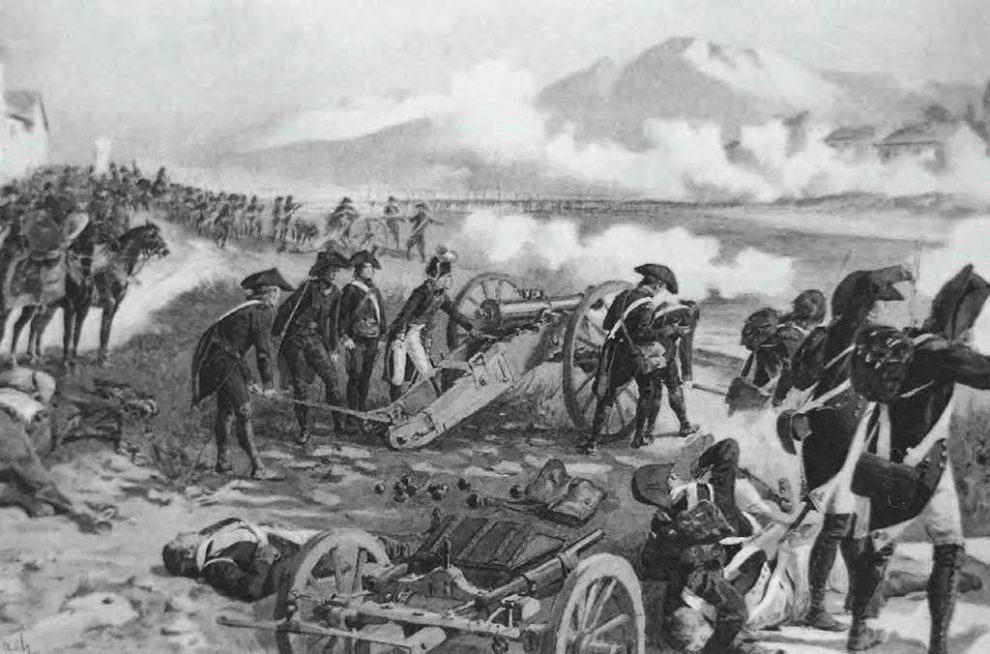
By 1796, the French Revolutionary Wars had engulfed Europe. Austria, one of the major powers at the time, sought to halt the French advance into Italy, a region of immense strategic importance. The young general Napoleon Bonaparte, appointed to command the French army in Italy, sought to demonstrate his military prowess and establish French dominance. The Battle of Lodi would prove to be a crucial moment in achieving these objectives.
On the morning of May 10, 1796, Napoleon’s forces crossed the bridge over the Adda River near Lodi, a small town in northern Italy. The French army, numbering around 20,000 soldiers, faced a well-entrenched Austrian force of approximately 10,000 troops. Despite being outnumbered, Napoleon devised a brilliant plan to break the Austrian lines and secure victory.
Recognizing the importance of speed and surprise, Napoleon personally led the charge across the bridge. Under heavy fire from Austrian cannons and muskets, the French soldiers advanced bravely. At a crucial moment, Napoleon’s famous statement, “Come on, my friends, I will show you how to win,” rallied his troops and inspired them to press forward with renewed determination.
The French soldiers, forming tightly packed columns, charged across the bridge. The concentrated mass of troops proved overwhelming for the Austrian defenders, who struggled to withstand the ferocity of the assault. Despite sustaining heavy casualties, the French pushed forward, and their momentum began to break the Austrian resistance.
Napoleon, leading from the front, displayed remarkable courage and leadership during the battle. As the French advanced, he directed artillery fire to disrupt the Austrian lines, creating gaps for his troops to exploit. The combined firepower and relentless assault of the French forces shattered the Austrian defenses, ultimately causing them to retreat in disarray.
The Battle of Lodi resulted in a decisive French victory. The Austrians suffered heavy losses, with thousands killed, wounded, or captured. Napoleon’s triumph at Lodi enhanced his reputation as a military genius and demonstrated his ability to lead from the front. This victory also opened the doors for further French expansion in Italy.
The Battle of Lodi marked a turning point in the French Revolutionary Wars. Napoleon’s tactical brilliance and audacity became evident, propelling him towards future triumphs. The battle showcased his ability to motivate and inspire his troops, creating an unwavering loyalty that would play a crucial role in his subsequent military campaigns.
The Battle of Lodi was a pivotal moment in Napoleon Bonaparte’s military career. His victory against the Austrians demonstrated his tactical genius and strategic vision. This triumph solidified his reputation as a formidable commander and laid the foundation for his future successes. The Battle of Lodi was not only a significant milestone in the French Revolutionary Wars but also a stepping stone towards Napoleon’s rise to power and the eventual French dominance in Italy



















Add Comment